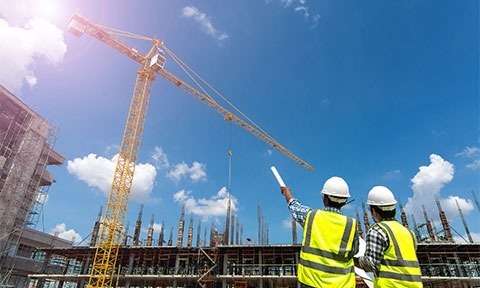Nuclear Power Plant: Structural Response
- Course designed for civil engineers on nuclear power plant installation design and seismic design basics.
- Nuclear power plants aim to combat climate change by moving away from fossil fuels.
- Course covers components in a nuclear installation, safety systems, seismic design, and waste disposal.
- Involves extensive civil engineering work due to challenges in handling radioactive material.
- Recent incidents like Fukushima highlight the risk of nuclear structures to earthquakes.
Overview
The course focuses on educating civil engineers without prior knowledge of seismic design or nuclear power plant installation design. It aims to cover the basics of generating electricity from nuclear reactions and includes topics such as components in a nuclear installation, safety systems, seismic design, geotechnical aspects, and waste disposal. The course addresses the challenges associated with constructing and operating nuclear power plants, particularly in light of recent incidents like the Fukushima disaster, to enhance engineers' understanding and skills in this specialized field.
Who should attend
Civil Engineers
Course Content
About the Course
Many countries are currently constructing or are in the planning/designing stage of building nuclear power plants. This is primarily to move away from the depleting fossil fuel and in an attempt to combat climate change. However, design construction and operation of these structures poses particular challenge with respect to handling radioactive material. The recent incident of Fukushima Nuclear Power plant highlighted the risk of these structures to earthquakes and eroded public confidence (in some countries such as Germany).
A project of such kind involves extensive civil engineering work. The course is designed for civil engineers with no prior knowledge of seismic design or Nuclear Power Plant Installation design. The course would cover basics of generating electricity from nuclear reaction that is adequate for Civil Engineers. The topics that will be covered are – components in a nuclear installation, safety philosophy and systems, relevant seismic design, geotechnical aspects in the design and waste disposal.
PROGRAMME
Day 1
08.30 – 09.00 Delegate Registration
09.00 – 10.30 Lecture 1: Structural Non-Linear – Prof Chris Pearce
Analysis – I
10.30 – 11.00 Break
11.00 – 12.30 Lecture 2: Structural Non-Linear – Prof Chris Pearce
Analysis – II
12.30 – 13.30 Lunch
13.30 – 15.00 Lecture 3: Review of Structural Software used in Nuclear Industry – Prof Chris Pearce
15.00 – 15.30 Break
15.30 – 17.00 Lecture 4: Structural Fire Engineering Concepts, Progress and Applications – Dr Martin Gillie
Day 2
09.00 – 10.30 Lecture 5: Load induced thermal strain in concrete containment structure of nuclear reactors – Dr Partha Mandal
10.30 – 11.00 Break
11.00 – 12.30 Lecture 6: On Seismic Analysis of a Cylindrical Gas Baffle Structure – Dr Rob Wang
12.30 – 13.30 Lunch
13.30 – 15.00 Lecture 7: A Risk Informed Approach to the Assessment of Flow Accelerated Corrosion in Power Plants – Chris Sellers
15.00 – 15.30 Break
15:30 – 17:00 Lecture 8: Seismic performance of a typical nuclear power plant in the UK: A probabilistic risk analysis approach – Dr Domenico Lombardi
CV’s of Lecturers:
Professor Chris Pearce
Professor Chris Pearce is a Professor of Computational Mechanics and hold the Royal Academy of Engineering / EDF Energy Research Chair at Glasgow. He graduated from the University of Wales Swansea in Civil Engineering in 1992. This was followed by an MSc and PhD from the same University. His first academic appointment was as a lecturer at the University of Glasgow. He was promoted to Professor in 2010. He is currently Head of the Infrastructure and Environment Research Division and Convenor of Research for the School of Engineering. He is a Fellow of the Institution of Civil Engineers and a Chartered Engineer.
Dr Martin Gillie
Dr Martin Gillie is a Reader in Structural Engineering with research interests in numerical modelling of structures, structures in fire and sustainability of structures. My teaching interests are mainly in structural design and engineering problem solving, although I have also taught engineering analysis, engineering maths and specialist courses in structural fire engineering. Following a degree in Civil Engineering from the University of Edinburgh (1st Class, 1997), I studied the behaviour of the Cardington Structure in fire and obtained my Phd in 2000, also from Edinburgh. I then spent some time working on silo structures as a researcher before moving to Aberdeen to work in offshore design for Andrew Palmer and Associates. In 2003 I returned to academia as lecturer at the University of Nottingham before a move back to Edinburgh in 2005. I was promoted to Senior Lecturer in 2011 and for two and half years was head of Civil Engineering Teaching. In 2014 I took up my current role as Reader at the University of Manchester. I am Member of the Institution of Structural Engineeers, a Chartered Engineer and Fellow of the Higher Education Academy.
Dr Partha Mandal
Partha Mandal is a senior lecturer in the School of Mechanical, Aerospace and Civil Engineering at the University of Manchester. He did his undergraduate degree in Civil Engineering from National Institute of Technology Durgapur (India), followed by a master degree in Structural Engineering at Indian Institute of Technology Kanpur. His Phd research at Cambridge University involved a classical problem on buckling of shell structure. He provided a new explanation for the well-known paradoxical behaviour of buckling of cylindrical shells under axial compression. Besides structural engineering, his current research areas include Bio-engineering, Mechanics of Woven Composites. These involve various analytical as well as experimental techniques. He leads the Bio-engineering research theme in the School. He has completed supervision of 17 PhD students so far, and currently supervising 12 PhD students. His current administrative and professional roles include – Undergraduate Civil Engineering Programme Director, Co- Irector of Manchester Institute for Collaborative Research on Ageing (MICRA).
Dr Rob Wang
Dr Rob Wang is a principal engineer and Business Development Manager of Engineering Analysis Services Limited (EASL) with over 30 years of experience in structural analysis and substantiation in the nuclear and defence industries in the UK. He obtained his first degree in Engineering Mechanics from Tsinghua University in China and a Ph.D from Loughborough University of Technology in the UK. His broad industrial experience covers nuclear facilities along the length of the UK such as Dounreay, Sellafield, Sizewell B and Hinkley Point B and C. His wide range of technical expertise include complex finite element analysis and structural integrity assessment of engineering structures, systems and components (SSCs) using a variety of codes of practice for pressure vessels (ASME III and RCC-M), steel structures (BS5950), cranes and mechanical handling equipment (BS2573) and creep-fatigue crack initiation at high temperature (R5). He has been the lead engineer/technical manager of numerous structure integrity substantiation projects in various organisations. In addition to his general practice in structural integrity, Rob is a leading specialist in earthquake engineering. He has been the seismic team leader in a number of companies with 20 publications in the field of seismic engineering and the vibration of turbo-machinery and has given numerous presentations on national and international conferences. He has also presented seismic training courses tailor-made for specific industrial clients and for internal training.
Mr Chris Sellers
Chris is a Senior Engineer at Engineering Analysis Services Limited (EASL) with over 8 years of experience in the nuclear industry in the UK. He obtained his master’s degree in Mechanical Engineering from Loughborough University of Technology in 2000 and following previous experience as a mechanical and methods engineer in the rail industry, joined EASL in 2009. His technical expertise includes structural integrity assessment of engineering structures, systems and components (SSCs) using a variety of codes of practice for pipework and pressure vessels such as ASME II, BS EN13480 and PD5500 including fracture mechanics assessments using R6. As the lead engineer and manager of EASL’s flow accelerated corrosion assessment team, Chris also has experience of working on site across all of the fleet of currently operational nuclear power stations in the UK and of the assessment of plant in various conditions using the results of multiple inspection techniques. He has also developed in house mentor and knowledge requirement guides for this type of work.
Dr Domenico Lombardi
Domenico Lombardi is currently a lecturer in Geotechnical engineering at The University of Manchester. After graduating with a first class honours (with distinction) in Civil Engineering from the University of Sannio (Italy), Domenico moved to the University of Bristol to finish his postgraduate studies, first with an MSc in Offshore Engineering and then with a PhD in Earthquake Engineering. His doctoral studies focused on the effects of soil liquefaction on the dynamic behaviour of pilesupported structures. Before joining The University of Manchester, he was appointed as a Foreign Researcher in the Department of Civil and Environmental Engineering at Yamaguchi University (Japan), where he investigated the cyclic behaviour of soils and conducted a series of field surveys in the area hit by the 2011 Tōhoku earthquake and subsequent tsunami. Domenico is author of over 20 publications focusing on different civil engineering problems, including long-term performance of offshore wind turbines and design of structures in liquefiable soils. His main research interests are in geotechnics and structural dynamics, related to problems of offshore engineering and behaviour of structures under repetitive loading



